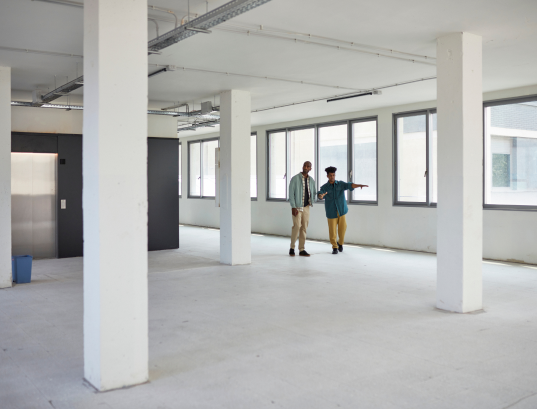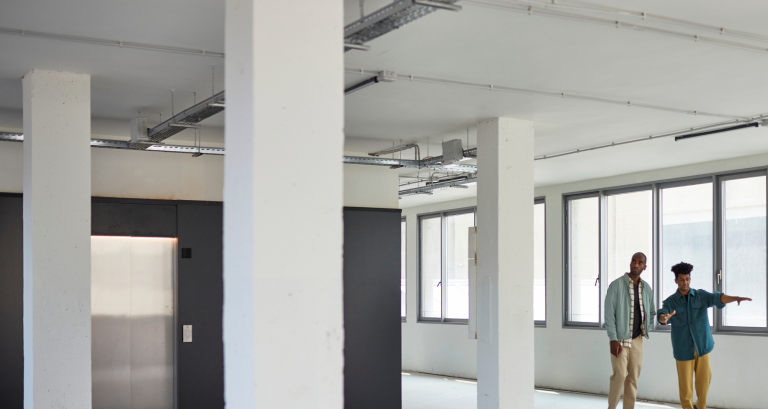
Stamp Duty Land Tax (SDLT) is a tax charged on the purchase or acquisition of property or land over a certain price in England and Northern Ireland. The tax is different if the property or land is situated in Scotland or Wales.
SDLT has become one of the most complicated and misunderstood taxes in recent years due to changes and imposition of additional rates for anyone owning more than one property. In addition, the devolved areas of the UK have added their own regional rates and bands.
Stamp Duty Rates for UK Residents
Stamp Duty Land Tax Rates and Thresholds in England and Northern Ireland
| Value of property | Existing residential SDLT rates (no other property owned) | Additional residential property SDLT rates |
| Up to £125,000 | 0% | 5% |
| The next £125,000 (From £125,001 to £250,000) |
2% | 7% |
| The next £675,000 (From £250,001 to £925,000) |
5% | 10% |
| The next £575,000 (From £925,001 to £1,500,000) |
10% | 15% |
| Upwards from £1,500,001 | 12% | 17% |
*The additional 5% charge does not apply where the property is purchased for less than £40,000.
Non-residents have to pay an additional 2% surcharge if the property purchase is more than £40,000.
In Scotland the names given is Land and Buildings Transaction Tax (LBTT) and in Wales it is Land Transaction Tax (LTT).
Stamp Duty Rates for Limited Companies for Residential Properties in England and NI
| Value of property | Additional residential property SDLT rates |
| Up to £125,000 | 5% |
| The next £125,000 (From £125,001 to £250,000) | 7% |
| The next £675,000 (From £250,001 to £925,000) | 10% |
| The next £575,000 (From £925,001 to £1,500,000) | 15% |
| Upwards from £1,500,001 | 17% |
When purchasing a property in a limited company and the value of the property over £500k, the standard rate of Stamp Duty Land Tax is 17%. However, a relief may apply to charge the standard rates of Stamp Duty Land Tax if the property will be let out on a commercial basis.
Scotland
In Scotland the name given is Land and Buildings Transaction Tax (LBTT).
Wales
In Wales stamp duty is referred to as Land Transaction Tax (LTT).
Stamp Duty Rates for Commercial and Mixed Land and Property
There is also a further stamp duty rate for mixed use land or property. This includes the following:
- commercial property, for example shops or offices
- property that isn’t suitable to be lived in
- forests
- agricultural land that’s part of a working farm or used for agricultural reasons
- any other land or property that is not part of a dwelling’s garden or grounds
- 6 or more residential properties bought in a single transaction
The rates applicable are:
| Property or lease premium or transfer value | SDLT rate |
| Up to £150,000 | 0% |
| The next £100,000 (the portion from £150,001 to £250,000) | 2% |
| £925,000 to £1.5m | 5% |



Does SDLT apply to landlords?
In short yes. This is however one of the most confusing areas of tax with many advisors making mistakes in their understanding of how the higher surcharge rate of 3% applies.
We have therefore condensed the 30 most common situations that landlords encounter and present these in a Question and Answer format :
If I purchase a new main residence but also keep my current main residence, convert it to a buy-to-let mortgage and rent it out. Will I have to pay the higher rates of SDLT on the purchase of my new main residence?

Yes, the higher rates apply as following the purchase you will own an additional residential property. - However, if you sell your previous home within 3 years of the purchase of the new one you will be able to claim a refund from HMRC.
I currently live in rented accommodation but own a property that is rented out. I am now looking to purchase my first home, for me and my family to live in. Will I have to pay the higher rates of SDLT on this purchase?

Yes, the higher rates of SDLT apply as following the purchase you will own an additional residential property (and will not have replaced your main residence, i.e.. sold a current main residence and purchased a new one).
I have been living and working overseas for a number of years and purchased a property there which I used as my main residence. I am now returning to the UK and wish to purchase a property here which will become my main residence, I intend to keep my overseas property to use as a holiday home. As I am purchasing a new main residence will I be exempt from the higher rates of SDLT?

No, the higher rates will apply to the UK purchase as following the purchase you will own an additional residential property and will not have replaced your main residence, i.e. sold your current main residence and purchased a new one.
I am a property developer, who purchases residential properties, refurbishes and then sells them. Will I be exempt from the higher rates of SDLT on any purchases that I make?

No, there are no reliefs or exemptions from the higher rates for property developers.
Is my property rental company exempt from the higher rates on purchases of properties for rental?

No, the higher rates apply to all purchases of residential property by companies. There are no reliefs or exemptions from the higher rates.
I am the tax advisor for a charity. The charity can generally claim relief from SDLT on the purchase of property used for charitable purposes. Does the charity have to pay the higher rates on purchases of residential property?

No, provided the purchase of the new property meets the conditions for relief, the charity will be able to claim full relief from any SDLT that would otherwise be due.
I jointly own a buy-to-let property with 4 friends. The property is worth £150,000, with my share being worth £30,000. I currently live with my parents but am now looking to purchase a home to live in. Will I have to pay the higher rates of SDLT on this purchase?

No, as your share of the buy-to-let property is under £40,000, the higher rates will not apply.
I own a main residence and also jointly own a buy-to-let with my brother. I'm planning to purchase my brother's share, paying him some cash and taking on his share of the mortgage. Will the higher rates apply?

Yes, the higher rates will apply to the total amount you give for your brother share, including any mortgage debt that you take on.
I live in accommodation provided by my employer. I am purchasing my own home which will be the only residential property I own. Will the higher rates of SDLT apply?

If you live in accommodation that you do not own, it will not count in determining whether you are purchasing an additional residential property. If you do not own any other property, then the higher rates of SDLT do not apply.
I live in accommodation provided by my employer. I am now purchasing a home for my family and me to live in. I also own a buy-to-let property. Am I subject to the higher rates of SDLT?

If you live in accommodation that you do not own, it will not count in determining whether you are purchasing an additional residential property. However, as you already own a residential property the higher rates will apply to the purchase of your new home.
I am currently living in rented accommodation, having sold my previous main residence nearly 18 months ago. I am now looking to purchase a new main residence within the next few months. I also have a number of buy-to-let properties. Will I have to pay the higher rates on the purchase of my new main residence?

Provided you purchase your new main residence within 3 years of the sale of your previous main residence, you are considered to be replacing your main residence, and therefore the higher rates will not apply.
I own a holiday home in Cornwall and a house in London which is my main residence. I am in the process of selling my main residence and purchasing a new one. I may not be able to sell my current main residence before I complete on the purchase of the new one, will I have to pay the higher rates?

Yes, the higher rates will apply, as following the purchase of your new property you will own an additional residential property and will not have replaced your main residence. However, if you sell your current main residence within 3 years of the purchase of the new one you will be able to claim a refund from HMRC.
I am purchasing a new main residence and selling my previous main residence but if my chain falls through and I go ahead with the purchase of my new property I will own two properties. Will I have to pay the higher rates on my new purchase?

Yes, you will pay the higher rates. However, if you sell you previous main residence within 3 years of the purchase of your new one you will be able to claim a refund from HMRC.
I am purchasing a shop with a flat above as an investment. Both the shop and flat will be rented out. I also own a main residence and a flat which is rented out. Will I have to pay the higher rates?

No, the higher rates do not apply to purchases which contain both residential and non-residential elements.
Is my prI have a 25% share in a shared ownership property and wish to increase my share to 50%. I own no other residential property. Will I have to pay the higher rates?

No, as this is the only residential property that you own the higher rates will not apply.
I own a house with my husband, which I live in as our main residence. My husband is planning to buy a flat to rent out - this will be in his name only. As we will then only own one property each, I assume the higher rates will not apply to the purchase of the flat?

The higher rates will apply to the purchase of the flat. As a married couple all property owned by either of you is treated as owned jointly. The purchase of the flat will therefore be classed as an additional residential property for both of you.
I have recently separated from my spouse and am about to purchase a new property that will become my main residence. I still own a share in the former marital home. Will I be liable for the higher rates of SDLT?

If you purchase a new main residence while still owning a share in your former home the higher rates will apply. However, if you are separated and this is likely to be permanent, and your previous main residence is sold within 3 years of purchasing your new one, a refund on the higher rates can be claimed.
My partner and I jointly own our home. We are purchasing another residential property which we intend to rent out/use as a holiday home. Will we have to pay the higher rates of SDLT?

Yes, you will be liable to the higher rates if purchasing an additional residential property (and not disposing of the previous main residence).
My partner and I are in the process of purchasing a property jointly, this will be our main residence. I currently own another property which I rent out, but my partner is a first-time buyer. Will we have to pay the higher rates of SDLT on the whole purchase price or just on the 50% that I am purchasing?

The higher rates will apply to the total purchase price as following the purchase you will own an interest in an additional residential property. For joint purchases the higher rates will apply if either of the purchasers own other residential property.
I am helping my son purchase a property that will be his main residence. My son is a first-time buyer but I own another property which is the family's main residence. I will have a 30% share in the property and my son a 70% share. Will we have to pay the higher rates of SDLT?

Yes, the higher rates will apply as following the purchase you will own an interest in an additional residential property and will not have replaced your main residence, i.e. sold your current main residence and purchased a new one.
Will a company be subject to the higher rates of SDLT?

A company purchasing a residential property will be subject to the higher rate of SDLT, even if the property will be its only residential property. There are no special exemptions from the higher rates of SDLT for companies. However, the higher rate of SDLT will not apply in circumstances where the company is subject to the 17% rate of SDLT.
I can claim relief from the 17% rate of SDLT on purchases of residential property for use in my property rental business. Will I also be able to claim relief from the higher rate for purchases of additional residential properties?

No, the reliefs that apply for the purposes of the 17% rate of SDLT do not apply for the higher rates for purchases of additional residential properties. If relief from the 17% rate of SDLT is available, the higher rates will apply.
I have a share in a limited company which owns a property for rental to tenants. I am purchasing another property which I will own direct. I do not own any other residential property. Will I have to pay the higher rates apply?

No, shareholdings in a company that owns residential property will not be counted when determining if an individual is purchasing an additional residential property, although the company may be liable to the higher rates if it purchases residential property, as this is your first purchase of a residential property the higher rates will not apply.
We are trustees of a bare trust in which all the assets and income are held for specified beneficiaries. We are purchasing a residential property. Will we have to pay the higher rates of SDLT?

The answer will depend on the situation of the beneficiaries. If any of the beneficiaries are individuals who own other properties then you will be liable to the higher rates unless the purchase is a replacement of the beneficiaries' main residence.
We are trustees of an interest in possession trust. We are purchasing a residential property. Will we have to pay the higher rates of SDLT?

The answer will depend on the situation of the beneficiary with the interest in possession. If the IIP beneficiary is an individual who owns other properties, then you will be liable to the higher rates unless the purchase is a replacement of the beneficiaries' main residence.
We are trustees of a discretionary trust. We are purchasing a residential property. Will we have to pay the higher rates of SDLT?

A trustee of a discretionary trust purchasing a residential property will be subject to the higher rate of SDLT, even if the property will be its only residential property. There are no special exemptions from the higher rates of SDLT for discretionary trusts.
I am in the process of purchasing my first property and I have unexpectedly inherited a 20% share in a property from an uncle. I own no other property. Will I have to pay the higher rates on my purchase?

No, the higher rates will not apply. A small share (50% or less) in a property which has been inherited within the 3 years of the purchase will not be taken into account in determining whether a purchaser is purchasing an additional residential property.
How do I claim a refund? Can I claim this myself?

If you sell your previous main residence within 3 years of purchasing your new main residence, you can claim a refund of the higher rates of SDLT. There is a simple form to complete which is available on GOV.UK. This needs to be completed within 3 months of selling your previous main residence, or within 12 months of the filing date of the return, whichever comes later. This can be completed by the main purchaser of the property which the higher SDLT payment was paid on; or by a solicitor acting on your behalf, if you provide a letter of consent.










